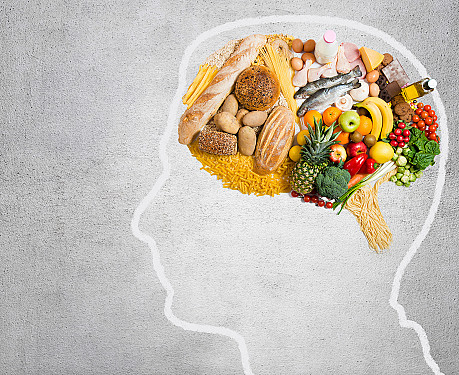While we often think of food as fuel for the body, what we eat also profoundly impacts our brain and emotional well-being. Emerging research shows a strong link between nutrition and mental health, revealing that a balanced diet rich in essential nutrients can help manage mood, reduce anxiety, and support cognitive function.
How Nutrition Influences Mental Health
The brain requires a variety of nutrients to function properly. Deficiencies or imbalances in key vitamins, minerals, and fatty acids can contribute to mental health issues like depression, anxiety, and cognitive decline.
-
Neurotransmitter production: Nutrients like amino acids, vitamins B6 and B12, and folate are essential for creating neurotransmitters, chemicals that regulate mood and cognition.
-
Inflammation: Poor diets high in processed foods can increase inflammation, which is linked to depression and other mental health disorders.
-
Gut-brain axis: The health of your gut microbiome influences brain health, and diet plays a crucial role in maintaining a healthy gut.
Nutrients That Support Mental Well-being
1. Omega-3 Fatty Acids
Found in fatty fish (salmon, mackerel), flaxseeds, and walnuts, omega-3s support brain cell communication and reduce inflammation.
2. B Vitamins
B6, B12, and folate are important for neurotransmitter synthesis. Sources include leafy greens, eggs, legumes, and fortified cereals.
3. Vitamin D
Linked to mood regulation, vitamin D is produced by the body when exposed to sunlight and can be found in fortified dairy and fatty fish.
4. Magnesium
This mineral helps regulate neurotransmitters and reduce stress. Found in nuts, seeds, whole grains, and leafy vegetables.
5. Antioxidants
Fruits and vegetables rich in antioxidants (like berries, spinach, and carrots) protect brain cells from oxidative stress.
Foods to Embrace and Avoid
-
Embrace: Whole grains, fruits, vegetables, nuts, seeds, lean proteins, and fermented foods to promote gut health.
-
Limit: Processed foods, sugary snacks, excessive caffeine, and alcohol, which can negatively affect mood and energy.
Practical Tips for Better Mental Health Through Nutrition
-
Start your day with a balanced breakfast containing protein, healthy fats, and complex carbs.
-
Include a variety of colorful fruits and vegetables to ensure a broad nutrient intake.
-
Stay hydrated, as even mild dehydration can impair concentration and mood.
-
Consider consulting a healthcare professional before starting supplements.
Conclusion
Nutrition plays a vital role in mental health by supporting brain function, regulating mood, and reducing inflammation. By choosing nutrient-dense foods and maintaining a balanced diet, you can foster better emotional well-being and cognitive performance.



Comments (0)
Leave a Comment
No comments yet. Be the first to share your thoughts!